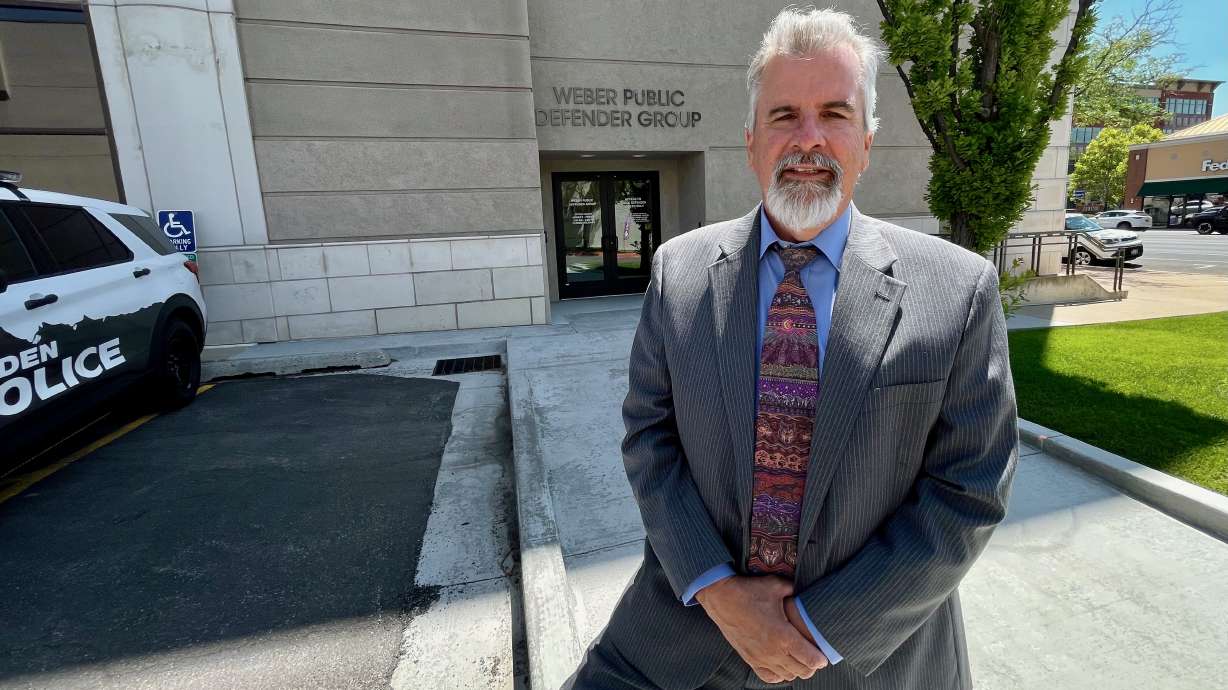Estimated read time: 2-3 minutes
- Weber County proposes creation of a special court to help certain veterans caught up in the court system.
- The court would put a focus on treatment over incarceration for eligible veterans, typically those charged with nonviolent offenses.
- Studies indicate that veteran treatment courts, which already exist in Salt Lake and Utah counties, help reduce recidivism.
OGDEN — In a bid to help military veterans in the justice system contending with drug and mental health issues, Weber County leaders are pursuing creation of a special court meant to help them address their particular needs.
"The focus is really more on getting them treatment, support and rehabilitation rather than incarceration," said Jim Retallick, director of the Weber Public Defender Group and a key force behind the effort. The public defender group provides attorneys for indigent people facing criminal charges in Weber County.
The proposed veteran treatment court serving Utah's 2nd District Court system in Weber, Davis and Morgan counties would be geared to lower-level criminal offenders who have served in the military. The focus would be on helping them "achieve sobriety, recovery and long-term stability," reads a press release on the plans.
While new to the 2nd District Court system, veteran treatment courts aren't a new concept in Utah. Such courts now serve the 3rd District Court in Salt Lake County, the 4th District Court in Utah County, U.S. District Court in Utah, and Salt Lake City Justice Court. Retallick said 800 such courts operate all around the country.
"Caring for our veterans is a priority," said Weber County Commissioner Gage Froerer.
Eligible veterans caught up in the legal system would have to have received an honorable or general discharge, while Retallick said veteran treatment courts are typically geared to those charged with nonviolent offenses.
"The offenses usually involve substance use and/or offenses involving mental health issues. However, the team is able to review all applicants on a case-by-case basis to determine participation," Retallick said.
The focus is really more on getting them treatment, support and rehabilitation rather than incarceration.
–Jim Retallick, Weber Public Defender Group
A survey conducted by the Weber Public Defender Group found that about one-third of veterans reported having been arrested at least once compared to one-fifth of nonveterans. Veterans, moreover, are twice as likely to face jailing as nonveterans, suggesting a need for specialized attention. Veteran treatment courts, meanwhile, have been shown to have a positive impact.
Studies indicate that only 14% of veterans in veteran treatment courts reoffend, while the recidivism rates for veterans in traditional courts range from 23% to 46%, according to Retallick.
Training workshops will be held next week for those who would be involved in the new court. The Utah Judicial Council, the policy-making body for the state's judiciary, would have to approve creation of the 2nd District Veteran Treatment Court, which Retallick expects by the end of the year.
Veterans who take part in veteran treatment courts, referred from traditional courts, can have charges reduced or dismissed, depending on the circumstances of their crimes and compliance with the orders that come out of their cases.
"One of the major components of a veteran treatment court is a treatment team which will assess the participant, determine the necessary treatment and monitor the participant for compliance," Retallick said.
The courts would provide mentors to participating veterans — "one of the strongest facets" of the plans, Retallick said.











